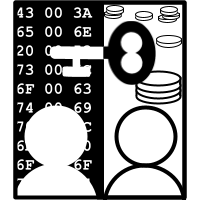Abstract:
We outline two dishonest strategies that can be cheaply executed on the Ethereum 2.0 beacon chain, even by validators holding less than one-third of the total stake: malicious chain reorganizations (“reorgs”) and finality delays. In a malicious reorg, an attacker withholds their blocks and attestations before releasing them at an opportune time in order to force a chain reorganization, which they can take advantage of by double-spending or front-running transactions. To execute a finality delay an attacker uses delayed block releases and withholding of attestations to increase the mean and variance of the time it takes blocks to become finalized. This impacts the efficiency and predictability of the system. We provide a probabilistic and cost analysis for each of these attacks, considering a validator with 30% of the total stake.
